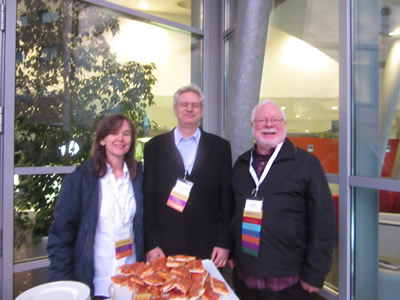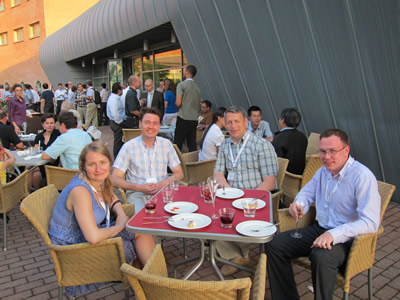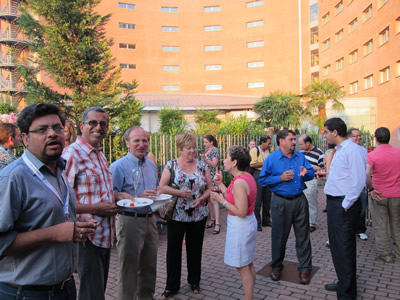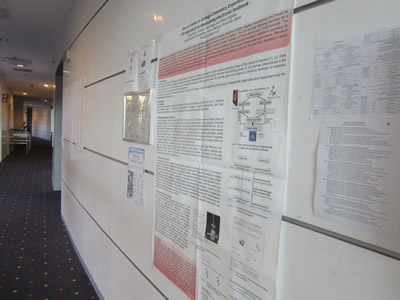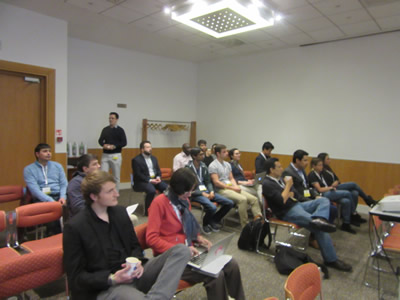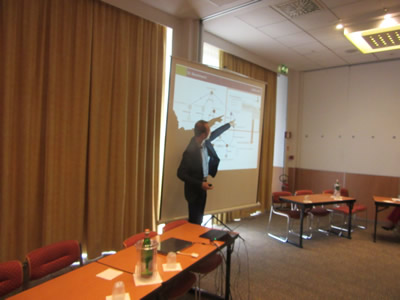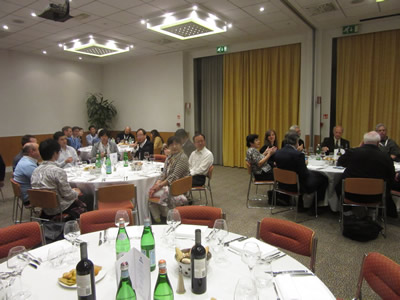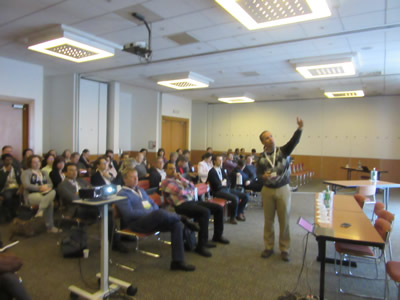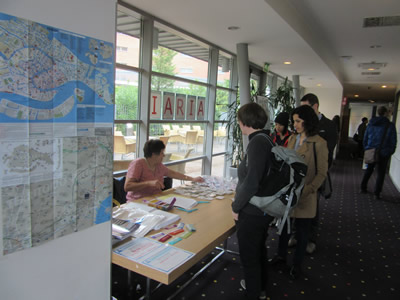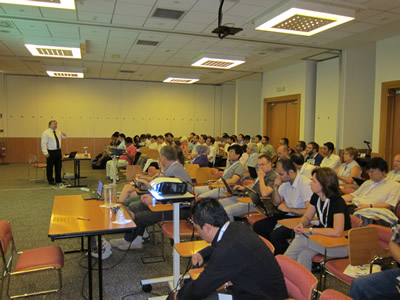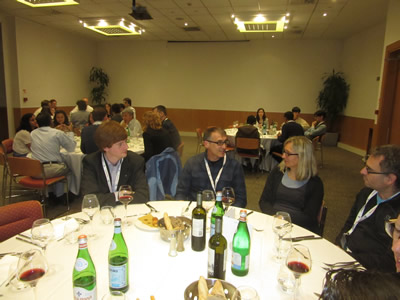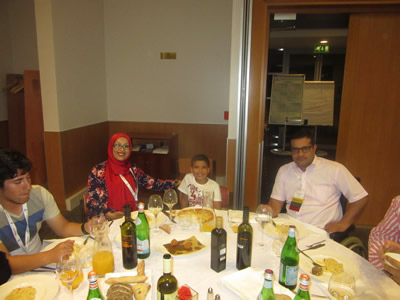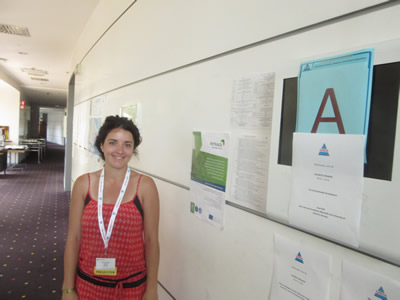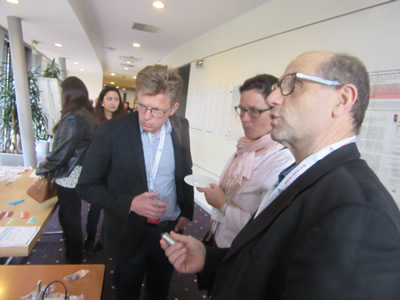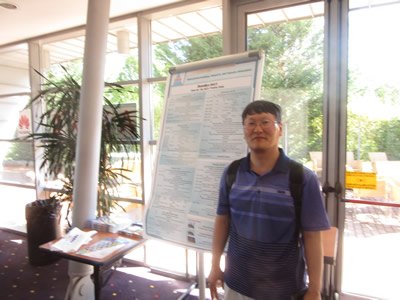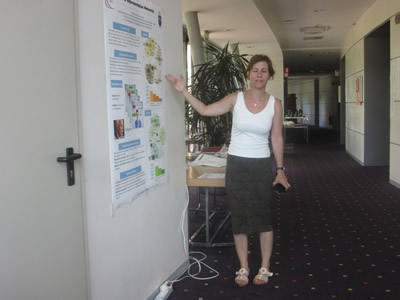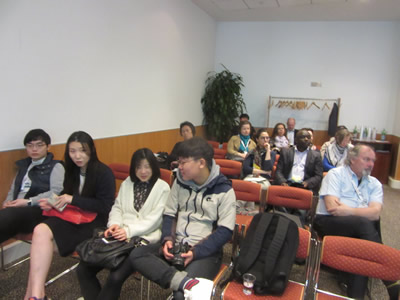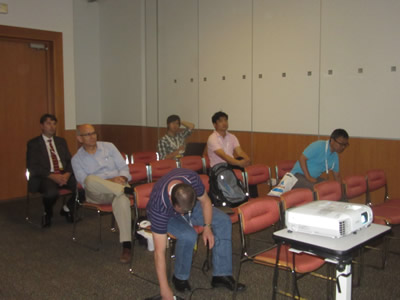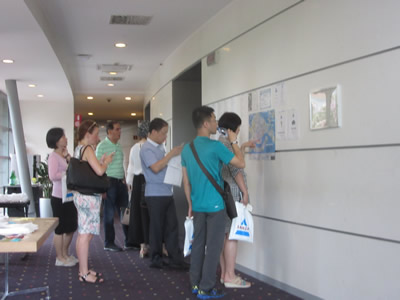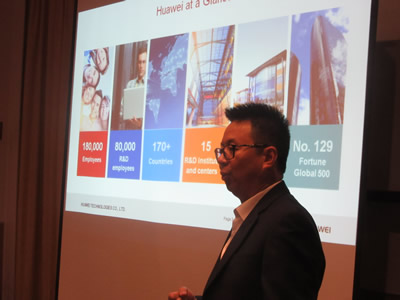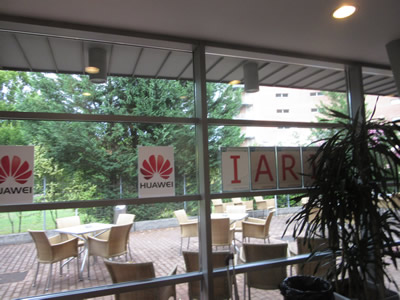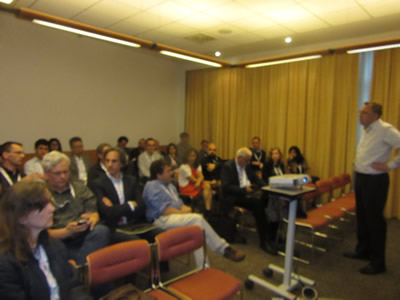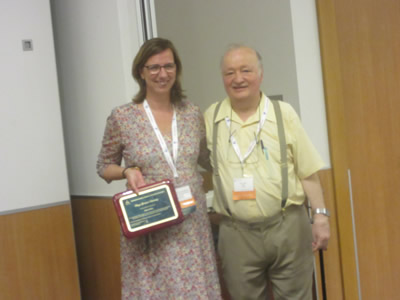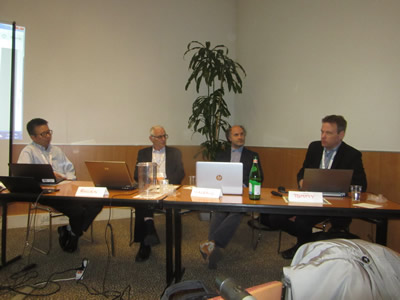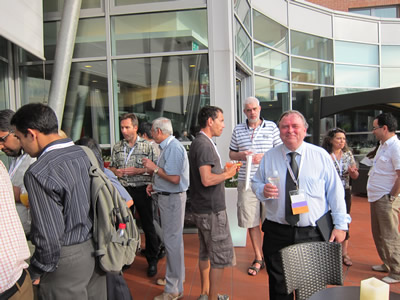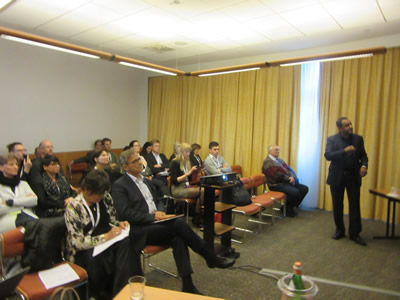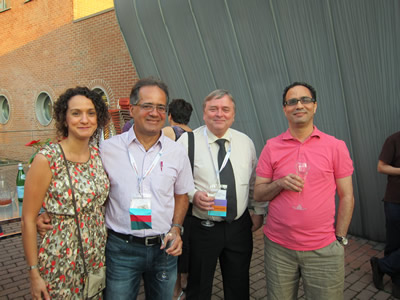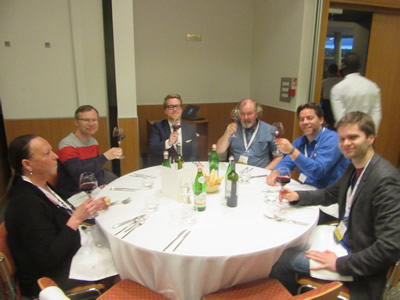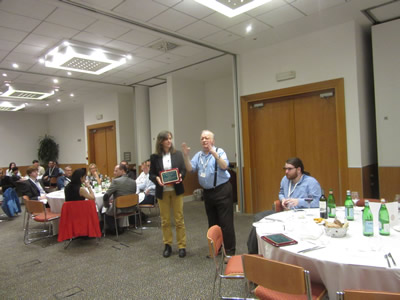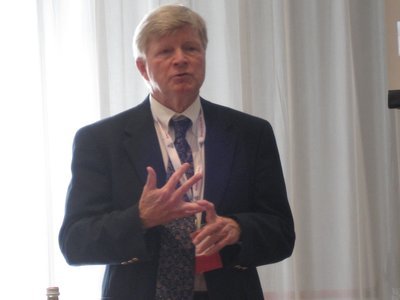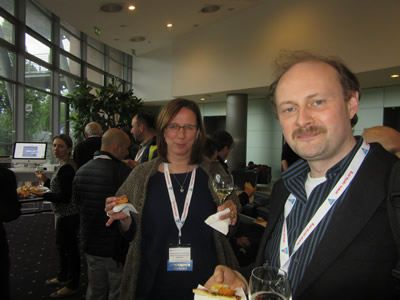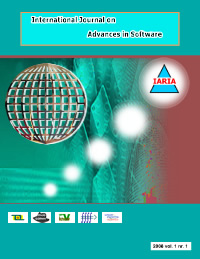ADVCOMP 2024 - The Eighteenth International Conference on Advanced Engineering Computing and Applications in Sciences
September 29, 2024 - October 03, 2024
ADVCOMP 2024
Onsite and Online Options: In order to accommodate a large number of situations, we are offering the option for either physical presence or virtual participation (pdf slides or pre-recorded videos).
ISSN: 2308-4499
ISBN: 978-1-68558-184-8
ADVCOMP 2024 is colocated with the following events as part of NexTech 2024 Congress:
- UBICOMM 2024, The Eighteenth International Conference on Mobile Ubiquitous Computing, Systems, Services and Technologies
- ADVCOMP 2024, The Eighteenth International Conference on Advanced Engineering Computing and Applications in Sciences
- SEMAPRO 2024, The Eighteenth International Conference on Advances in Semantic Processing
- AMBIENT 2024, The Fourteenth International Conference on Ambient Computing, Applications, Services and Technologies
- EMERGING 2024, The Sixteenth International Conference on Emerging Networks and Systems Intelligence
- DATA ANALYTICS 2024, The Thirteenth International Conference on Data Analytics
- GLOBAL HEALTH 2024, The Thirteenth International Conference on Global Health Challenges
- CYBER 2024, The Ninth International Conference on Cyber-Technologies and Cyber-Systems
ADVCOMP 2024 Steering Committee
| |
 |
Dean Vucinic
Vrije Universiteit Brussel (VUB), Belgium
FERIT, Croatia
|
|
 |
Juha Röning
University of Oulu
Finland
|
| |
 |
Hans-Joachim Bungartz
TUM
Germany
|
|
 |
Marcin Hojny
AGH University of Science and Technology
Poland
|
| |
 |
Andreas Rausch
TU Clausthal, Clausthal-Zellerfeld
Germany
|
|
 |
Alice E. Koniges
University of Hawai‘i at Mānoa
USA
|
ADVCOMP 2024 conference tracks:
Advances on computing theories
Machine learning theory; Machine learning models (supervised, unsupervised, reinforcement, constrained, etc.); Explainable AI (feature importance, LIME, SHAP, FACT, etc.); Finite-state machines; Petri nets /stochastic/colored/probabilistic/etc; Genetic algorithms; Prediction theory; Bayesian theory /statistics/filtering/estimation/reasoning/rating/etc; Markov chains/process/model/etc; Graphs theories; Training of models (hyperparameter optimization, regularization, optimizers); Active learning (partially labels datasets, faulty labels, semi-supervised); Data in machine learning (no data, small data, big data, graph data, time series, sparse data, etc.); Applications of machine learning (recommender systems, NLP, computer vision, engineering, urban, environmental, etc.)
Advances in computation methods
Hybrid computational methods; Advanced numerical algorithms; Differential calculus; Matrix perturbation theory; Rare matrices; Fractals & super-fractal algorithms; Random graph dynamics; Multi-dimensional harmonic estimation
Computational logics
Knowledge-based systems and automated reasoning; Logical issues in knowledge representation /non-monotonic reasoning/belief; Specification and verification of programs and systems; Applications of logic in hardware and VLSI; Natural language, concurrent computation, planning; Deduction and reasoning; Logic of computation; Dempster-Shafer theory; Fuzzy theory/computation/logic/etc
Advances on computing mechanisms
Clustering large and high dimensional data; Data fusion and aggregation; Biological sequence analysis; Biomecatronics mechanisms; Biologically inspired mechanisms; System theory and control mechanisms; Multi-objective evolutionary algorithms; Constraint-based algorithms; Ontology-based reasoning; Topology and structure patterns; Geometrical pattern similarity; Strong and weak symmetry; Distortion in coordination mechanisms
Computing techniques
Distributed computing; Parallel computing; Grid computing; Autonomic computing; Cloud computing; Development of numerical and scientific software-based systems; Pattern-based computing; Finite-element method computation; Elastic models; Optimization techniques; Simulation techniques; Stream-based computing
Resource intensive applications and services (RIAS)
Fundamentals on RIAS; Basic algorithms for RIAS; Communications intensive; Process intensive; Data-intensive computing; Operational intensive; Cloud-computing intensiveness; User intensive; Technology intensive; Control intensive; Complex RIAS; Bioinformatics computation; Large scale ehealth systems; Pharmaceutical/drug computation; Weather forecast computation; Earthquake simulations; Geo-spatial simulations; Spatial programs; Real-time manufacturing systems; Transportation systems; Avionic systems; Economic/financial systems; Electric-power systems
Computational geometry
Theoretical computational geometry; Applied computational geometry; Design and analysis of geometric algorithms; Design and analysis of geometric algorithms and data structures; Discrete and combinatorial geometry and topology; Data structures (Voronoi Diagrams, Delaunay triangulations, etc.); Experimental evaluation of geometric algorithms and heuristics; Numerical performance of geometric algorithms; Geometric computations in parallel and distributed environments; Geometric data structures for mesh generation; Geometric methods in computer graphics; Solid modeling; Space Partitioning; Special applications (animation of geometric algorithms, manufacturing, computer graphics and image processing, computer-aided geometry design, solid geometry)
Interdisciplinary computing
Computational /physics, chemistry, biology/ algorithms; Graph-based modeling and algorithms; Computational methods for /crystal, protein/ structure prediction; Computation for multi-material structure; Modeling and simulation of large deformations and strong shock waves; Computation in solid mechanics; Remote geo-sensing; Interdisciplinary computing in music and arts
Cloud computing
Hardware-as-a-service; Software-as-a-service [SaaS applicaitions]; Platform-as-service; On-demand computing models; Cloud Computing programming and application development; Scalability, discovery of services and data in Cloud computing infrastructures; Privacy, security, ownership and reliability issues; Performance and QoS; Dynamic resource provisioning; Power-efficiency and Cloud computing; Load balancing; Application streaming; Cloud SLAs, business models and pricing policies; Custom platforms; Large-scale compute infrastructures; Managing applications in the clouds; Data centers; Process in the clouds; Content and service distribution in Cloud computing infrastructures; Multiple applications can run on one computer (virtualization a la VMWare); Grid computing (multiple computers can be used to run one application); Cloud-computing vendor governance and regulatory compliance
Grid Networks, Services and Applications
GRID theory, frameworks, methodologies, architecture, ontology; GRID infrastructure and technologies; GRID middleware; GRID protocols and networking; GRID computing, utility computing, autonomic computing, metacomputing; Programmable GRID; Data GRID; Context ontology and management in GRIDs; Distributed decisions in GRID networks; GRID services and applications; Virtualization, modeling, and metadata in GRID; Resource management, scheduling, and scalability in GRID; GRID monitoring, control, and management; Traffic and load balancing in GRID; User profiles and priorities in GRID; Performance and security in GRID systems; Fault tolerance, resilience, survivability, robustness in GRID; QoS/SLA in GRID networks; GRID fora, standards, development, evolution; GRID case studies, validation testbeds, prototypes, and lessons learned
Computing in Virtualization-based environments
Principles of virtualization; Virtualization platforms; Thick and thin clients; Data centers and nano-centers; Open virtualization format; Orchestration of virtualization across data centers; Dynamic federation of compute capacity; Dynamic geo-balancing; Instant workload migration; Virtualization-aware storage; Virtualization-aware networking; Virtualization embedded-software-based smart mobile phones; Trusted platforms and embedded supervisors for security; Virtualization management operations /discovery, configuration, provisioning, performance, etc.; Energy optimization and saving for green datacenters; Virtualization supporting cloud computing; Applications as pre-packaged virtual machines; Licencing and support policies
Development of computing support
Computing platforms; Advanced scientific computing; Support for scientific problem-solving; Support for distributed decisions; Agent-assisted workflow support; Middleware computation support; High performance computing; Problem solving environments; Computational science and education; Neuronal networks
Computing applications in science
Advanced computing in civil engineering; Advanced computing in physics science; Advanced computing in chemistry science; Advanced computing in mathematics; Advanced computing in operation research; Advanced computing in economics; Advanced computing in electronics and electrical science; Advanced computing on Earth science, geosciences and meteorology
Complex computing in application domains
Computation genomic; Management of scientific data and knowledge; Advanced computing in bioinformatics and biophysics; Advanced computing in molecular systems and biological systems; Application of engineering methods to genetics; Medical computation and graphics; Advanced computing in simulation systems; Advanced computing for statistics and optimization; Advanced computing in mechanics and quantum mechanics; Advanced computing for geosciences and meteorology; Maps and geo-images building; Curve and surface reconstruction; Financial computing and forecasting; Advanced computing in robotics and manufacturing; Advanced computing in power systems; Environmental advanced computing
Deadlines:
Submission | Jul 01, 2024 |
Notification | Aug 05, 2024 |
Registration | Aug 19, 2024 |
Camera ready | Aug 29, 2024 |
Deadlines differ for special tracks. Please consult the conference home page for special tracks Call for Papers (if any).
